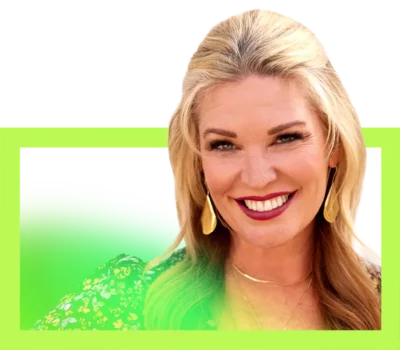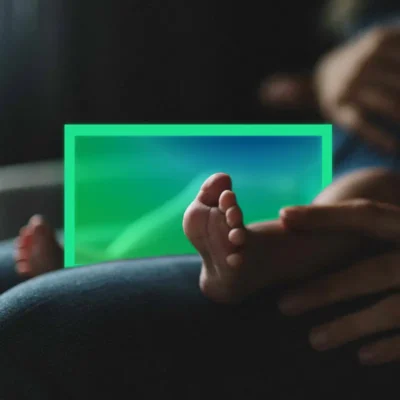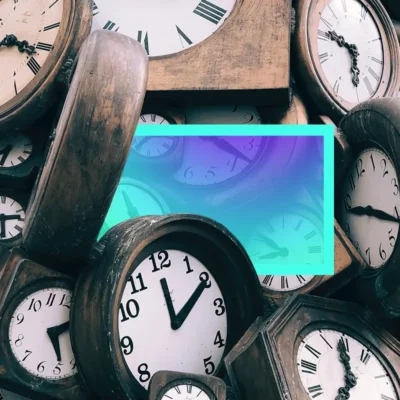Unleash your inner lion
Jen Hatmaker — author and host of the For The Love podcast — is a charismatic, natural born leader. But growing up, Jen believes there are only certain roles women like her can be expected to perform. Roles that are always secondary to men in leadership. This week, Jen tells the story of embracing her inner lion and learning that we can be powerful in many ways, not just the ways we’ve been shown.
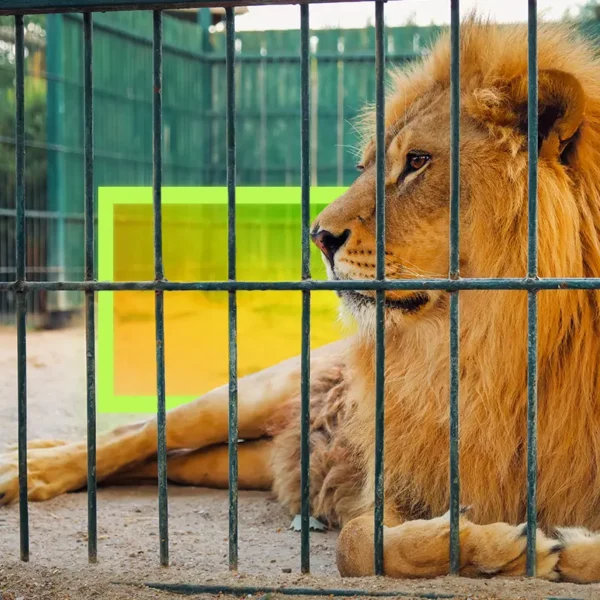
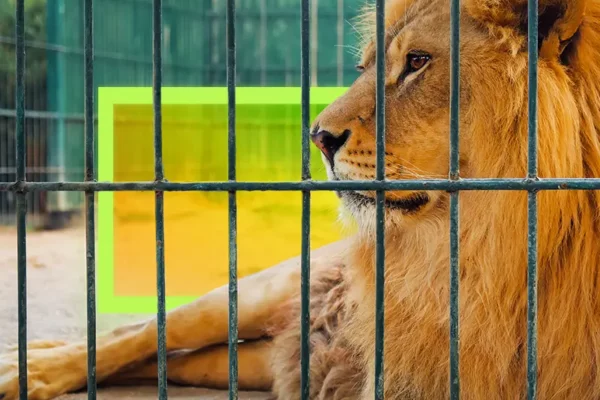
Table of Contents:
Transcript:
Unleash your inner lion
JEN HATMAKER: I adore Miss Prissy. She’s always so nice. She makes me feel smart and funny. Like I’m a sunflower turning to the sun. I pick up a pair of gold hoop earrings and hold them up to my earlobes. I don’t even have my ears pierced yet. But even pretending to wear this bold jewelry, I feel brave. Like a lion.
ROHAN GUNATILLAKE: Growing up in the church, Jen Hatmaker witnesses concrete power dynamics play out between men and women, husbands and wives. She believes she’ll never be allowed to lead in the community she loves so much. But this week, Jen shares the story of her years-long journey towards finally recognizing: we can be powerful in many ways, not just in the ways we’ve been taught.
In this series, we combine immersive first-person stories, breathtaking music, and mindfulness prompts so that we may see our lives reflected back to us in other people’s stories. And that can lead to improvements in our own inner lives.
From WaitWhat, this is Meditative Story. I’m Rohan, and I’ll be your guide.
The body relaxed. The body breathing. Your senses open, your mind open, meeting the world.
HATMAKER: I step into the backyard and feel the thick, cool grass beneath my bare feet. My skin is immediately sticky in the heat of a Louisiana summer. Across from me, I see three long picnic tables strung together, end to end. Each one is covered in newspaper, like a makeshift tablecloth. The rich, earthy aroma of cajun spices and fresh seafood fills my nose. I can almost taste it. The smell of a crawfish boil.
I’m ten years old. I vibrate with anticipation as Mr. Ron — a friend of my parents —walks over. He and another one of the dads carry an enormous steaming pot. “All right!” Mr. Ron says, “Here’s the first batch.” They tip the pot over. Bright red crawfish and yellow corn and onions and potatoes spill out over the entire length of the table. Right onto the newspaper.
A crawfish boil is an all-day backyard affair. It’s communal. Multiple families. Tons of kids. Every good Cajun owns multiple picnic tables specifically for this. That’s just a law, I think.
I squeeze in between two other kids and scan the feast. My eyes go wide. I forget where to begin, and I’m too embarrassed to ask for help. That’s when I feel a hand on my shoulder. I look up to see Mr. Ron’s wife, Mrs. Cheryl. She smiles and very patiently shows me again how to peel a crawfish. She reaches for a saltine cracker, and puts my favorite dip on it, which is a mixture of ketchup, mayonnaise, mustard, and hot sauce. I stack the crawfish meat on top. This is the perfect serving, and I’ll eat 20 of these.
I grow up around all these bonus moms and dads like Mrs. Cheryl and Mr. Ron. Friends of the family and people in our church. I absorb everything about life, work, and marriage through them.
When she sees that I’m all taken care of, Mrs. Cheryl walks back towards their house. My eyes follow her. Through the window, I see my mom with all the other women. They’re all dressed sensibly and practically — khakis and plain colored blouses. And of course they’re as busy as ever. Making the dips and getting the potatoes ready, taking care of the babies and toddlers. There are so many families here. So much for the women to do.
My gaze shifts to the dads. They’ve been outside all day boiling the crawfish. I see them huddled together at the end of the wide lawn. They’re as serious as brain surgeons about their operation. This is their domain.
The dads are loud with big booming personalities and voices, almost every one of ’em. From what I can tell, they do mostly whatever they want. They have time-consuming hobbies like fishing and golfing and watching sports all weekend.
The dads are always the leaders. They have the power. My dad is a pastor in our Baptist church, and everywhere we move is always for my dad’s job. My mom either changes jobs when we get to a new town or spends all her time taking care of me and my three siblings. It seems like the men get to drive the ship, and the moms and the kids are the passengers, and that’s life.
I never hear the moms complain. They do quiet labor. They keep everybody’s lives from falling apart, really. But all the while, they’re all so pleasant. They never make a fuss. So, it must be ok.
My fingers covered in broth and spices, I take the last bite of my crawfish. I see one of the moms run out into the yard after some escaped two-year-old.
I’ll be a good mom someday too, I think. I’ll be pleasant. Not cause any problems. I’ll take care of the family and make sure the world doesn’t fall apart. After all that’s what women do. That’s the kind of power women can have.
I can barely breathe, I’m so excited. My knees dig into the soft shag carpet. My friend Bridget kneels next to me, giggling. In front of us is her mom’s double-decker fishing tackle box. I reach down and flip the metal latch.
There’s no tackle inside. It’s all of Bridget’s mom’s flamboyant jewelry. So many pairs of big, out-of-control earrings. No little pearls here. She doesn’t own anything that’s little, not one thing. All the earrings, and chunky bracelets, rings on every finger. Big, big, big. She has a big personality too. She’s loud and funny and so over the top. So different from my mom or really the other moms in town. Her name is, appropriately, Miss Prissy.
Just as we dive into the tackle box, Miss Prissy walks in. She’s dressed, of course, in leopard print from head to toe. She has long red fingernails. She wears tons of makeup, more makeup than I knew ever existed on earth, frankly. And her hair is bleach blonde, but who knows what color it really is. We’ll never know. Jesus will never know. She’s a 1984 glamor woman. She sees us pawing through her jewelry. And rather than fuss at us, she makes sure we notice the latest addition: Shoulder length pink crystal chandelier earrings. Outrageous. Flamboyant. Phenomenal.
I’ll never be like Miss Prissy. First of all, we’re always moving, and I’m kind of awkward. I don’t have many friends at school. I think I might be funny, but I certainly don’t have a molecule of charisma or flare, much less glamor. I just try to be well-behaved and not cause a fuss. But I sometimes feel like a background character in everyone else’s story
I remember last week, Miss Prissy saying to my mom, “By the time I’m dead, my whole body’s gonna be plastic. You will not see one bit of me that’s real.” I’m stunned, like, “Can we say that?” My family are church people. We don’t talk like this. Sometimes, I even overhear other mothers saying, “Oh, Prissy, that’s too much.” Not everyone knows what to do with her big presence.
But I adore Miss Prissy. She’s always so nice. She makes me feel smart and funny. Like I’m a sunflower turning to the sun. Like I can be funny. And use my voice. She loves me in a way that’s just as extravagant as everything else about her.
And she just blows my brain about how much space we can take up. What kind of power we can hold.
I pick up a pair of gold hoop earrings and hold them up to my earlobes. I don’t have my ears pierced yet. But even pretending to wear this bold jewelry, I feel brave. Like a lion. Stillpart of me worries about showing this lion to anyone else.
My faith and the church community are important to me. I worry about doing anything that might cause conflict. It’s ok for Miss Prissy to act and look the way she does. She’s so confident. But I’m not powerful like that. I can’t let the lion out of the cage.
GUNATILLAKE: There may be someone in your life who expresses themselves in ways that you feel you never could. Through clothes, through vibe. What was it about them that excited you? What would it be to allow yourself a bit of their energy?
HATMAKER: The sanctuary is arranged in a dramatic sloping semicircle around the stage. The carpet is low pile, forest green. And the wooden pews are just uncomfortable enough to keep you from nodding off. The choir’s voices rise up to the high ceilings of the church. That glorious sound reverberates all around the beautiful white building. 1500 congregants fill up the rows and rows of pews. Everyone’s dressed up, holding their hymnals. At the front of the sanctuary, the preacher stands on a huge stage, leading our Sunday service.
My husband sits next to me in our pew near the front. I’m 22, and he’s 24. We’re right out of college. We moved here to Tulsa, Oklahoma a few weeks ago, so he could be the student pastor at this church. I know what it means to be married to a minister. I watched my parents’ relationship growing up. It’s always been clear to me that my life will be centered around my husband and his work. His job is my second job. Unpaid, of course. I have signed up for this, and my full desire is to be the most amazing wingman. We are a team. And I am the supporting character.
The choir starts a new hymn as we near the end of the service. It’s time for the offerings. The preacher looks out over the crowd and says, “We’re going to have the deacons come up to take the collections.”
So, a deacon is a kind of leadership position in the church. They help with administration and day-to-day operations. I want to familiarize myself with these men who will be working closely with my husband.
But then, a woman stands up and steps into the aisle. She holds a large metal offering plate with both hands. Then another woman. And another. Wait. I thought the Preacher said the Deacons were going to pass the offering plates? Deacons in all my previous churches were all male. Seeing this, I don’t know what to think. They have lady Deacons here. That can’t be right.
I built my life around very specific norms. Specific ideas about the roles men and women have in society. It’s the only world I’ve ever known. And it’s tied to a community and faith so close to my heart.
Sitting here in my pantyhose and my sensible shoes, I start doing these mental gymnastics, just trying to make sense of it really. “These must be the deacon’s wives,” I’m thinking, until I start realizing I’ve met some of these women, and I know not all of them are married.
The offering plates move up the aisles as people stack them with checks and cash. I feel like I’m doing something wrong just by being here, participating in this. As if it’s against the rules.
The offering plate is coming right towards me. My thoughts are spinning. How am I even going to tell my parents that we have lady deacons in our church?
This is my first time ever seeing women in leadership in a spiritual context. Holding that kind of power in what I thought was such a male-dominated world. And I just don’t know how to process it. I didn’t know we were allowed to have a life like this. I kept my lion in a cage for so long because, honestly, I didn’t think there was another way. But if leadership is available to these women, what’s available to me?
The basement classroom has terrible acoustics. It’s in the belly of the beast of our church. It’s not a warm setting. But this is where we have bible study here in Tulsa. This particular class is taught by our church’s lead bible teacher, a woman named Margaret.
She stands confidently at the head of the room, bible open, her notes on the podium. She is dressed to the nines. She’s impeccable, and sophisticated, with short, sleek, gray hair. Very academic in nature and full of life.
Today, we’re discussing the Book of Esther. I look around the classroom at the faces of the other students. There are about 50 people. Men and women. In most churches, a woman would just be teaching other women. But that’s not how Margaret operates.
She drops all this history into my ears I’ve never heard. She shows us Persia on an ancient map as she teaches the story of Esther, who was an orphaned woman who became the queen of that empire. Esther’s story is violent, but she ultimately succeeds in saving her people from being killed by the king.
I know my Old Testament. So, of course, I know this story well.
But I hear Margaret speak of Esther through the lens of subjugation, lack of consent, and even sexual coercion. I am shook. I’ve never heard this story like this before. Women in the bible have always been presented to me as side characters or archetypes — if they’re presented at all.
Margaret points at the ancient map. “This is where it happened. Right here,” she says. “And there were laws that were used to literally summon young girls away.” I kind of sit back in my seat. I wonder: What if Esther had ambitions to do something else with her life? What if she loved somebody from her hometown? What if she wanted to be more than somebody’s wife?” I realize Esther is not just a heroine, or a fairytale princess in a castle. She’s a real person.
This reframes everything. Like so many experiences I’ve had at this new church, where women are welcomed to lead, this stirs something inside me. Have I been seeing myself as only one-dimensional?
My heart is beating. There’s a distant rattling in me. I feel that inner lion I’ve kept at bay my whole life. I want to let that lion out. I want to lead. I want to take up space. I want to be a writer. And teach my own classes. And reach other women and help them tell their stories.
I think of Miss Prissy and those first inklings I had that I might want something more. I didn’t allow myself to have that back then. But I can start now. I see what it means to be powerful in every way, not just in the ways I’ve been shown before.
GUNATILLAKE: Is there something inside of you that you know is there but that you have yet to release? Can you feel it now within your body? Feel its energy, the sense of possibility there.
HATMAKER: I sit at the head of my dining room table in Austin, Texas. I have paper bills spread out everywhere. Cluttered piles of folders and receipts. This table is like my central headquarters, my command station. But I don’t feel in command of anything. I’m drowning.
I’m 46 years old, and for, really, the first time, I’m looking at my own phone bill. This Is new for me.
Over a decade ago, I embark on a new career path. I create space for my own desires. My own ambition. I write over a dozen books, host a meaningful podcast, and teach women about strength, independence, all that they’re capable of. But while my professional life takes off, my personal life unravels. My husband and I have recently divorced after 26 years of marriage, and I am totally disoriented.
I have to face the fact that somehow I know nothing about managing finances without my husband. I never managed our money. I don’t know how much debt we have. I don’t know the passwords to the electric company account. Honestly I didn’t pay attention to this stuff. It’s part of the template I grew up in: men mostly handle money. Throughout our marriage, when it comes to things like bills, taxes, mortgages, I was barely in the passenger seat; more like the trunk of the car.
When my husband leaves, in a blink, I’m in free fall. I find myself crying my eyes out in the little conference room of a financial planners office. I can’t answer any of his simple questions. I don’t have a chance to learn this slow. This is a crash course.
First order of business: figure out what you have, what you owe, and what you are paying. Alright. So, as I scan the pages and pages of bills, I find a charge from the phone company that I didn’t authorize. I’m being billed for it every month. It’s $36. I go over it again and again with a magnifying glass. My eyes feel dry and bleary. I grab my phone and dial a number at the top of the bill. I’m passed from one customer service rep to another. But I do not give up.
The hold music blares. I stand up and pace around the table. “I will get this taken care of,” I say to myself.
Finally, a manager gets on the line. I explain the mischarge, confidently and clearly. “This will be taken off my bill.” I say before he can even interject. “And not just off this one bill, but all the way back through the start of the year when the charges began. Yes, I’ll hold.”
After two hours, I get it all back. I get it handled. I hang up the phone and think: You know what, this is who I am now. I’m paying attention. I’m wide awake. This is how careful I’ll be with my money, with my life. I am a good partner to myself. And I can trust myself with my own future.
Obviously, in truth, this is a small thing. Contesting a charge of $36. But a year ago, I didn’t even know who our provider was. When my husband left I remember thinking: I can’t keep the kids afloat. I can’t heal my own broken heart. I don’t even know where to begin. Some part of me still believed I had to be content with only being a passenger in somebody else’s life. I said to myself back then: I can’t do it. But the thing is, I could, I can, and I am. I am powerful in more ways than I knew.
We all grow up with certain templates. Society or tradition gives us ideas about what we’re capable of and how much power we are allowed to have. So we cage our inner lions and tell ourselves, well, that’s just how it has to be.
But when we dare to really take up space, when we learn from liberated, confident people in our lives, we find that we’re capable of more than we ever knew. When we give the lion freedom, we access power and agency and authority in our own life beyond what we ever imagined.
Rohan’s closing meditation
GUNATILLAKE: Thank you Jen.
Jen, I really appreciate your pointing us to the idea of space, and what happens when we take it up.
So let’s start here in our closing meditation together.
One of the advantages of having a body is that we exist in space. We’re filled with space, and we can sense ourselves as a being in space. Let’s enjoy it and feel that space.
Dropping our awareness, however we can, into the sense of our body as a whole. Aware of the touch of the air on our skin. The sensations of our breath. That tension in our shoulders. This is just what the space of us is like right now. And it’s wonderful. Our space is wonderful.
Now, can you, like me, notice how we’re able to extend the sense of space beyond the boundaries of the body?
The ranges of sense experience are not confined to our body are they? We can hear things far away. We can see for miles. We can feel the effects of winds which started on the other side of the continent. As for our minds, who knows how wide their reach is?
Let’s enjoy how big our sensual space is, how big it can be. We can feel it directly. We can imagine it. Or we can feel-imagine it.
Allowing the mind, our senses to be as expansive as we can.
Enjoying space. Enjoying spaciousness.
Jen’s story contains so many powerful role models. So many people who show her what it means to embrace her inner strength and purpose.
We all have people like this in our lives. We may know them personally. Or have just read about them in books. The heroes that show us what’s possible and awaken our ability to step into the space we need.
So to end, let’s bring to mind a hero of the past or present, real or mythological. A friend, a teacher, whoever.
Bring them to mind, and see if you can visualize them standing tall. Broad and powerful.
With them in our presence, let’s bask in it. Warming ourselves in their qualities.
Who is here with you? Take your time.
Visualize them and their qualities.
Talk to them if you like.
And if you feel ok, let’s take on their qualities.
Embodying their qualities. Their power. Wearing their essence like it is your own.
And however might make sense for you, try being them.
Being your hero.
Their nature in your space.
Because it is your space.
And y’know what, it’s also your nature.
Thank you Jen for your story and your ongoing work.
And thank you.
Go well.
We’d love to hear your personal reflections from Jen’s episode. How did you relate to her story? You can find us on all your social media platforms through our handle @MeditativeStory, or you can email us at: [email protected].
